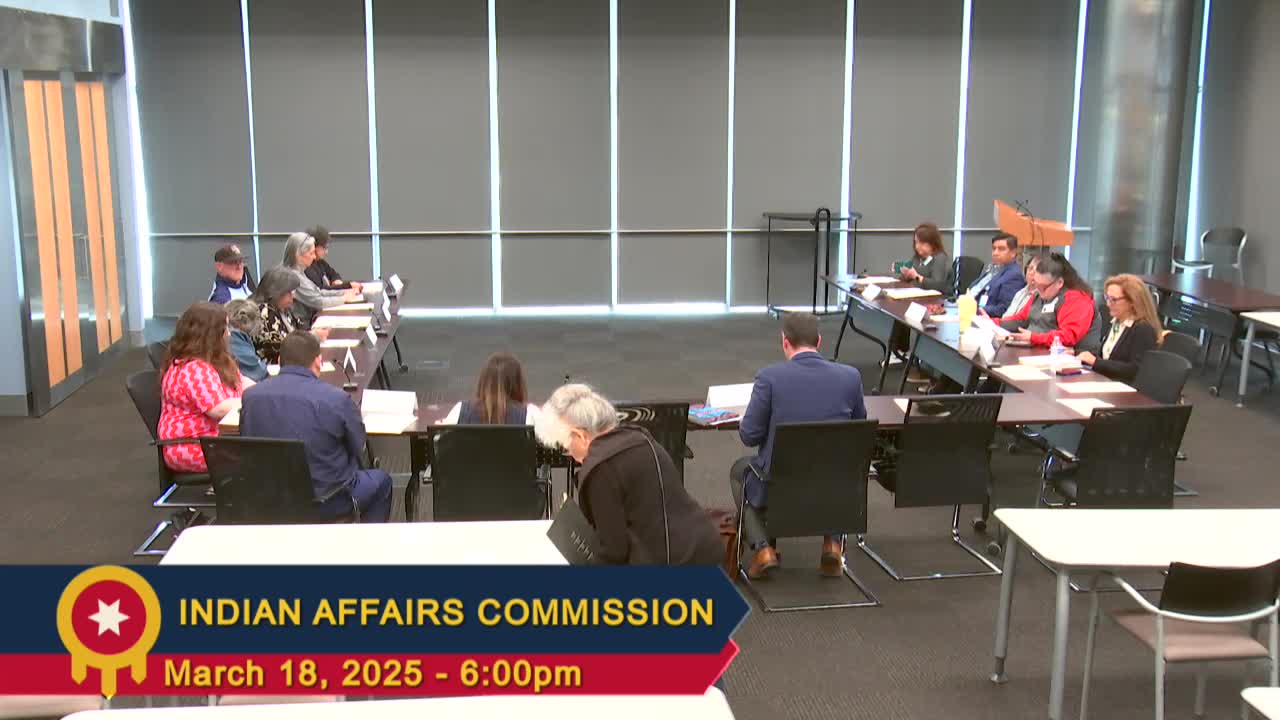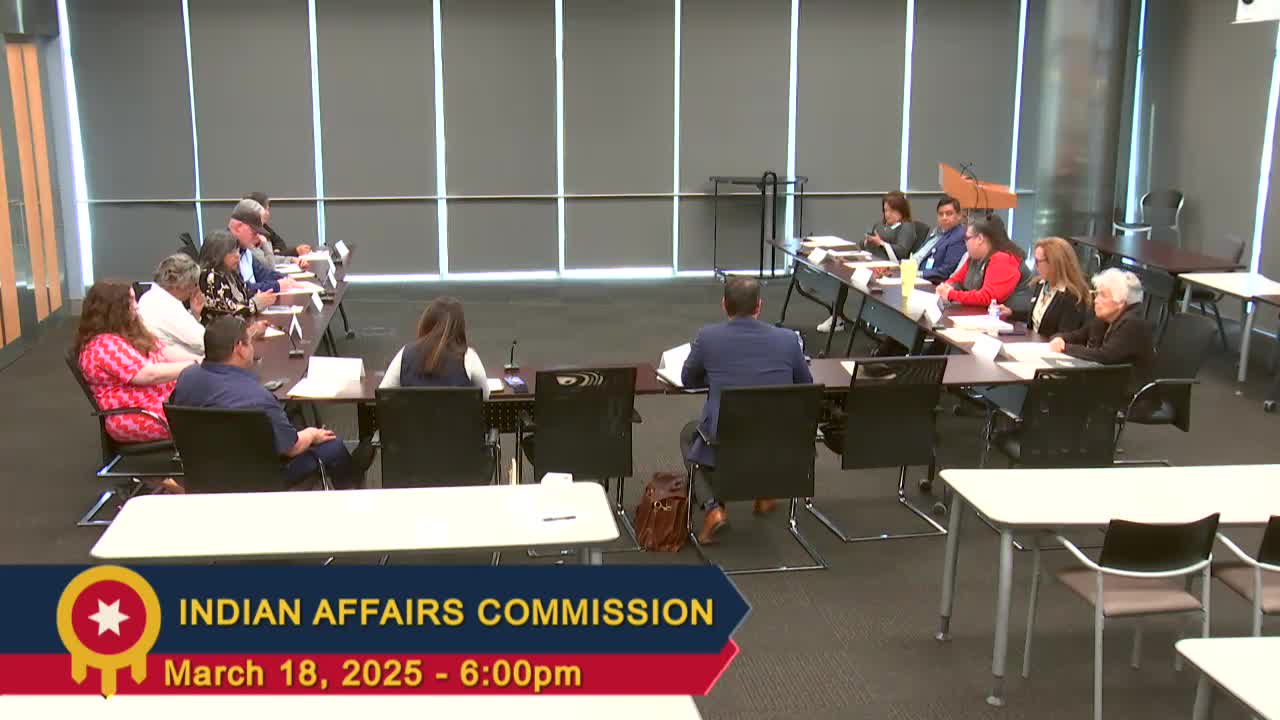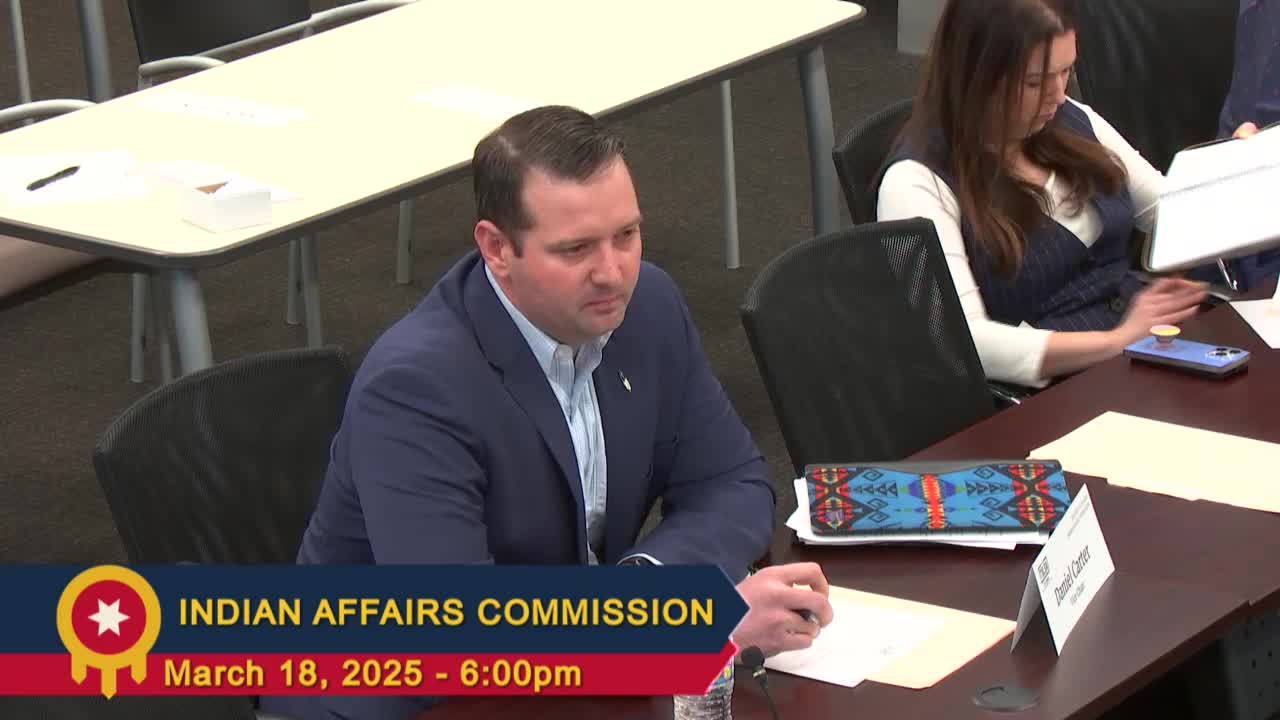Article not found
This article is no longer available. But don't worry—we've gathered other articles that discuss the same topic.

Commission approves meeting minutes, appoints Commissioner Joyce Roberts to Human Rights Commission

Commissioners raise alarm over BIA lease terminations, IHS changes and possible breaches of tribal trust obligations

